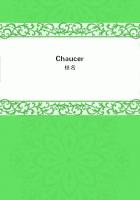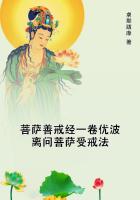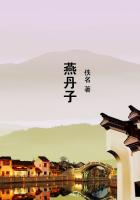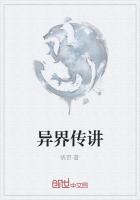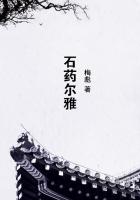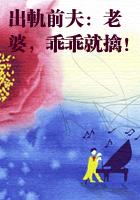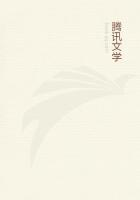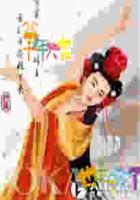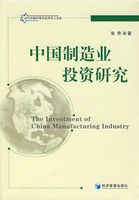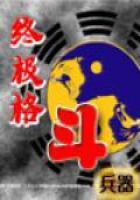"A curious thing happened to me," he said, "when I was a child. I could hardly have been six years old. I had gone to Ghent with my parents. I think it was to visit some relative. One day we went into the castle. It was in ruins then, but has since been restored.
We were in what was once the council chamber. I stole away by myself to the other end of the great room and, not knowing why I did so, I touched a spring concealed in the masonry, and a door swung open with a harsh, grinding noise. I remember peering round the opening. The others had their backs towards me, and I slipped through and closed the door behind me. I seemed instinctively to know my way. I ran down a flight of steps and along dark corridors through which I had to feel my way with my hands, till I came to a small door in an angle of the wall. I knew the room that lay the other side. A photograph was taken of it and published years afterwards, when the place was discovered, and it was exactly as I knew it with its way out underneath the city wall through one of the small houses in the Aussermarkt.
"I could not open the door. Some stones had fallen against it, and fearing to get punished, I made my way back into the council room.
It was empty when I reached it. They were searching for me in the other rooms, and I never told them of my adventure."
At any other time I might have laughed. Later, recalling his talk that evening, I dismissed the whole story as mere suggestion, based upon the imagination of a child; but at the time those strangely brilliant eyes had taken possession of me. They remained still fixed upon me as I sat on the low rail of the veranda watching his white face, into which the hues of death seemed already to be creeping.
I had a feeling that, through them, he was trying to force remembrance of himself upon me. The man himself--the very soul of him--seemed to be concentrated in them. Something formless and yet distinct was visualising itself before me. It came to me as a physical relief when a spasm of pain caused him to turn his eyes away from me.
"You will find a letter when I am gone," he went on, after a moment's silence. "I thought that you might come too late, or that I might not have strength enough to tell you. I felt that out of the few people I have met outside business, you would be the most likely not to dismiss the matter as mere nonsense. What I am glad of myself, and what I wish you to remember, is that I am dying with all my faculties about me. The one thing I have always feared through life was old age, with its gradual mental decay. It has always seemed to me that I have died more or less suddenly while still in possession of my will. I have always thanked God for that."
He closed his eyes, but I do not think he was sleeping; and a little later the nurse returned, and we carried him indoors. I had no further conversation with him, though at his wish during the following two days I continued to read to him, and on the third day he died.
I found the letter he had spoken of. He had told me where it would be. It contained a bundle of banknotes which he was giving me--so he wrote--with the advice to get rid of them as quickly as possible.
"If I had not loved you," the letter continued, "I would have left you an income, and you would have blessed me, instead of cursing me, as you should have done, for spoiling your life."
This world was a school, so he viewed it, for the making of men; and the one thing essential to a man was strength. One gathered the impression of a deeply religious man. In these days he would, no doubt, have been claimed as a theosophist; but his beliefs he had made for, and adapted to, himself--to his vehement, conquering temperament. God needed men to serve Him--to help Him. So, through many changes, through many ages, God gave men life: that by contest and by struggle they might ever increase in strength; to those who proved themselves most fit the sterner task, the humbler beginnings, the greater obstacles. And the crown of well-doing was ever victory. He appeared to have convinced himself that he was one of the chosen, that he was destined for great ends. He had been a slave in the time of the Pharaohs; a priest in Babylon; had clung to the swaying ladders in the sack of Rome; had won his way into the councils when Europe was a battlefield of contending tribes; had climbed to power in the days of the Borgias.
To most of us, I suppose, there come at odd moments haunting thoughts of strangely familiar, far-off things; and one wonders whether they are memories or dreams. We dismiss them as we grow older and the present with its crowding interests shuts them out; but in youth they were more persistent. With him they appeared to have remained, growing in reality. His recent existence, closed under the white sheet in the hut behind me as I read, was only one chapter of the story; he was looking forward to the next.
He wondered, so the letter ran, whether he would have any voice in choosing it. In either event he was curious of the result. What he anticipated confidently were new opportunities, wider experience.
In what shape would these come to him?
The letter ended with a strange request. It was that, on returning to England, I should continue to think of him: not of the dead man I had known, the Jewish banker, the voice familiar to me, the trick of speech, of manner--all such being but the changing clothes--but of the man himself, the soul of him, that would seek and perhaps succeed in revealing itself to me.
A postscript concluded the letter, to which at the time I attached no importance. He had made a purchase of the hut in which he had died. After his removal it was to remain empty.
I folded the letter and placed it among other papers, and passing into the hut took a farewell glance at the massive, rugged face.
The mask might have served a sculptor for the embodiment of strength. He gave one the feeling that having conquered death he was sleeping.
I did what he had requested of me. Indeed, I could not help it. I thought of him constantly. That may have been the explanation of it.

